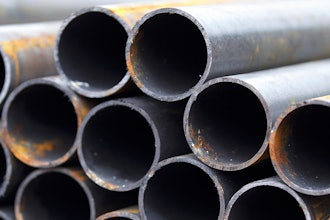The call for transparency and accountability is everywhere, and it’s deafening. And that means us -- even as responsible corporations and/or environmental citizens, too, not just politicians. With the growing pessimism of consumers against the unknowns of chemicals, paired with the origins of explosions and oil spills, these trends could become disastrous for the processing reputation.
As an industry, we have the responsibility to disseminate hazardous claims about our products, processes and/or businesses, and in an equal-opportunity kind of way, dispel potentially damaging disinformation. With all of the conflicting literature out there, we know that we have our hands full, but then again, we can never go far enough to gain the trust of the public.
Unfortunately, however, we needn't go far to hear the murmur of discontent. Facebook groups call upon the masses to boycott BP's fueling stations. Threads of distrust unravel about the safety of cadmium in children's jewelry and drink wear, and the toxic amount of BPA being used in baby bottles from the web on Twitter.
Whether this current of negativity has a valid or scientific foundation makes no difference in this conversation. Whether this trend has to do with exploding online communities and consumer forums has no bearing either. It's what we should do about it, as an industry, that matters most, if not at all.
Take BP, of course, as the most blatant contemporary example. I feel a bit cheated, don’t you? Even if the oil giant has done everything in its power to cap the leak, there is still no taking back all of the damage already done. The company, of course, also offered the most conservative number possible to tell us how much their offshore oil rig is spewing into the ocean. Then, as if by magic (or just less conservative science), that number was magnified overnight by third-party observers and experts.
On top of this is the fact that every party with potential liability in the case of the Gulf of Mexico -- BP, Transocean and Halliburton -- is pointing fingers rather than working together to figure out how to prevent future disasters through transparency. It's not that there's anything inherently wrong about a company with transparent processes. It is just that those kinds of companies are much more likely to be held accountable for something gone awry because they actually admit to wrongdoing, while everyone else is still sputtering.
When analyzing a number of historial explosions and the steps that could've been taken to prevent them from happening, I read over and over that management was already aware of some kind of safety problem. Yet, they hadn't had the time or didn't think it was a priority, or the company had already been warned about certain unsafe procedures prior to an accident.
This is astounding and utterly unacceptable as far as I'm concerned. We can only cover the black eyes of the processing industry by caking on so much chemical-laden makeup. The only way that consumers are going to trust the marketplace is by being up-front and honest, rather than secretive and manipulative.
If it were possible to set the precedent by looking ahead, with a mantra repeating prevention, prevention, prevention, then maybe we wouldn't have to spend so much time looking over our shoulder, repeating sorry, sorry, sorry, while covering our tracks.
Is transparency even justifiable in the processing marketplace? How do you think these companies should be held accountable? Sound off by e-mailing me at [email protected].






















